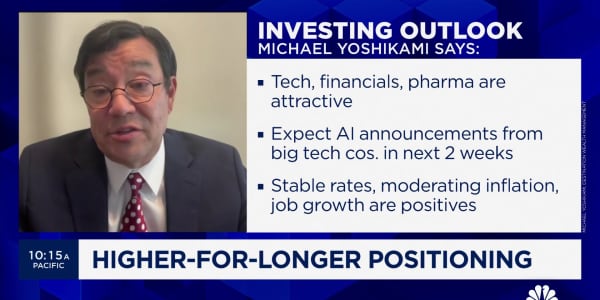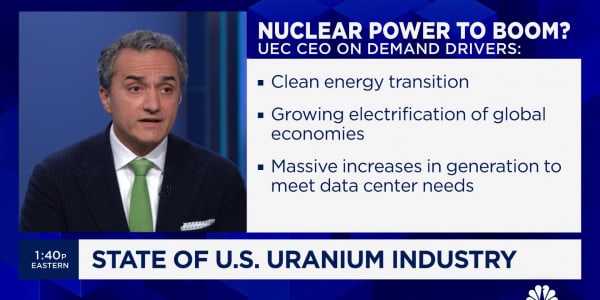
Here's a scary retirement prediction: 85 percent of public pensions could fail in 30 years.
That's according to the largest hedge fund firm in the world, Bridgewater Associates, which runs $150 billion for pensions and other institutions like endowments and foundations.
Public pensions have just $3 trillion in assets to cover liabilities that will balloon to $10 trillion in future decades, Bridgewater said in a client note last week obtained by .
To make up the difference, the firm said pensions will need to earn about 9 percent per year on their investments. But Bridgewater estimates pension funds are more likely to make 4 percent. If that's true, the vast majority—85 percent—of retirement systems will run out of money because they will continue to pay out more than they take in.
The report comes as pensions wrestle with what rates of return to assume given their implications on future financial health.
The city of Detroit, for example, has reportedly agreed to increase its pensions' projected return to 6.75 percent on its pension funds, up from 6.25 percent and 6.5 percent, according to a separate USA Today report. The change is part of ongoing pension cut negotiations for the city to exit bankruptcy.
Read More Detroit close to deal with pension funds over retirement benefits: Pension official
To test the broad financial health of public pensions, Bridgewater simulated the effect of various market environments on retirement system funding using 100 years of data on how stocks, bonds and other assets performed in the past, plus current projections of future long-term yields. Public pensions will run out of money in 20 years in 20 percent of those scenarios; they'll fail in 50 years in 80 percent of the situations.
A leading academic center for retirement and pension research criticized the report.
"These are inflammatory numbers which can create an enormous amount of anxiety," said Alicia Munnell, director of the Center for Retirement Research at Boston College. "The pension issue is not a game. Pensions represent the future security of today's public employees and those are real people."
Munnell, also the Peter F. Drucker professor of management sciences at BC's Carroll School of Management, believes Bridgewater's 4 percent return projection is far too low.
"If we live in a world where 4 percent nominal returns is the only returns people can get, it implies a really horrible economy with high unemployment, very slow growth and a big gap between potential and actual output," Munnell said.
"A cynic could say that these projections suggest that plans are going to earn only 4 percent unless they shift some of their investments to alternatives," Munnell added. She called on Bridgewater to release the full report.
Read MoreBridgewater outperforms macro peers
The report was one of Bridgewater's daily notes to clients, called "Daily Observations." The communications are not public, but Bridgewater told CNBC.com it plans to release an explanation of the study in the future.
"Just as we stress test banks by running multiple scenarios through their future conditions to assess what might happen, we think it makes sense to stress test pension funds," Bob Prince, Bridgewater's co-chief investment officer, said in an interview.
"That's in contrast to the common approach, which is to determine sufficient funding by asserting a certain return and discounting that back to a present value and comparing that to your assets. We think that you can have a much more robust assessment by running stress tests based on multiple scenarios."
Bridgewater acknowledges that its 4 percent return projection—based on current asset prices like low bond yields and an already-elevated stock market—is just one potential outcome to consider and any long-term projection is inherently difficult.
Munnell said most public pensions assume long-term returns on their investments of about 7.75 percent annually. Her center regularly studies the impact of lower expectations, around 6 or 6.5 percent.
Bridgewater, founded in 1975 by now-billionaire Ray Dalio and based in Westport, Conn., has long attracted pensions and others with two types of products: "Pure Alpha" hedge funds that bet on broad macroeconomic themes, and a more conservative "All Weather" product that is designed to protect assets in any economic environment (also known as a "risk parity" strategy).
The firm's Pure Alpha II fund has gained 13.6 percent net of fees on average since inception in 1991. All Weather has produced average annual returns of 8.9 percent since inception in 1996.
Read MoreSurprise: Risk parity funds are back as big winners
Public retirement systems were 73 percent funded overall at the end of 2012, according to the latest data available from Boston College's retirement center. The numbers are based on the present liabilities value of $3.8 trillion, which uses a baseline projection of 7.75 percent stock market returns from 2013 to 2016.
"States and localities also continued to fall short on their annual required contribution payments," the report said. But it also noted that "the funded ratio is projected to gradually move above 80 percent, assuming a healthy stock market."
Read MoreWhat retirement train wreck?






